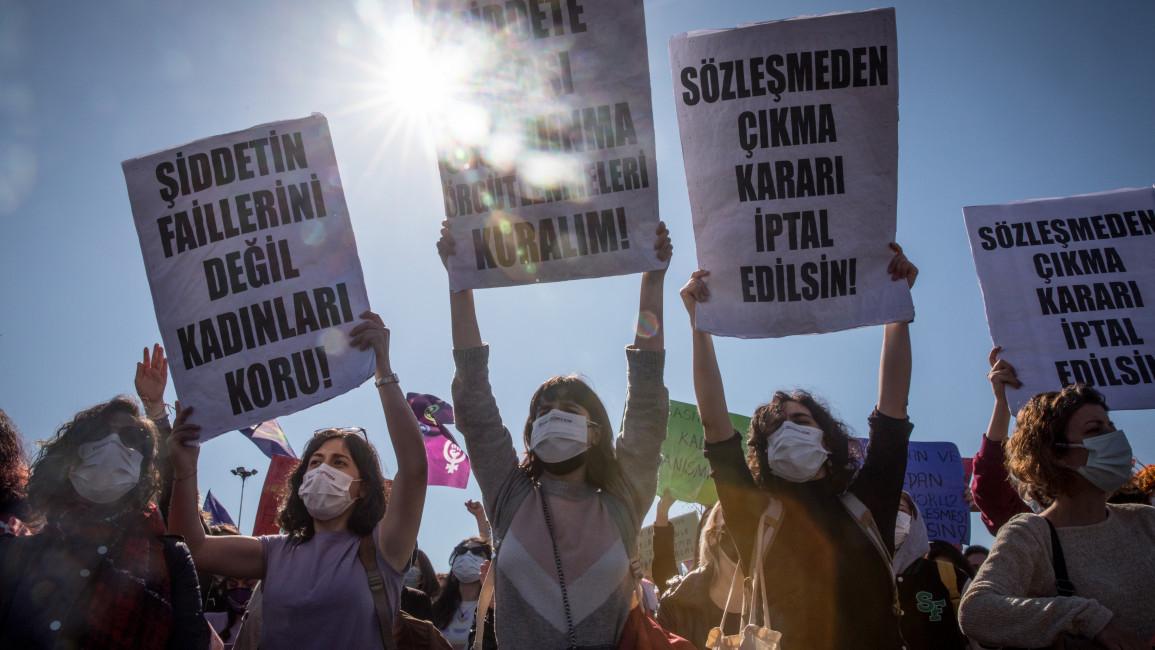Iranian refugees face deportation over protest against Turkish withdrawal from Istanbul Convention
Three Iranian refugees could be deported from Turkey for attending a women's rights protest last year over Ankara's withdrawal from the Istanbul Convention, The Guardian reported on Wednesday.
Lily Faraji, Zeinab Sahafi and Ismail Fattahi were arrested after attending demonstrations in favour of the 2011 treaty, which combats femicide and domestic abuse, in Turkey's southern city of Denizli in March last year.
The controversial withdrawal sparked outrage across Turkey as the pact requires governments to adopt legislation linked to the prosecution of crimes including marital rape and female genital mutilation. The pact is signed by 45 countries and the European Union.
"They were taken from their homes because they joined in the Istanbul convention protests," Buse Bergamali, the refugees' lawyer, told The Guardian, stating that the three were charged with "disturbing public order" and "participating in unlawful demonstrations".
The lawyer added there was "no indication in the court decision" that they cannot be sent back to Iran, despite being granted conditional refugee status. Turkish authorities ruled earlier this month that Iranian dissidents could be deported.
Turkey's withdrawal from the world's first treaty to prevent and combat violence against women drew widespread criticism from women's rights groups who said the decision would put women at a larger risk of violence.
The decision also drew criticism from Western leaders, including US President Joe Biden, and UN rights chief Michelle Bachelet.
"[The withdrawal] represents a significant step backwards in Turkey's efforts to advance women's rights, especially given that gender inequality and gender-based violence against women remain a serious concern in Turkish society," a statement from Bachelet's office said at the time.
Turkey's highest administrative court also rejected an attempt to annul the withdrawal, saying that Turkish President Recep Tayyip Erdogan had the authority to make the decision.



